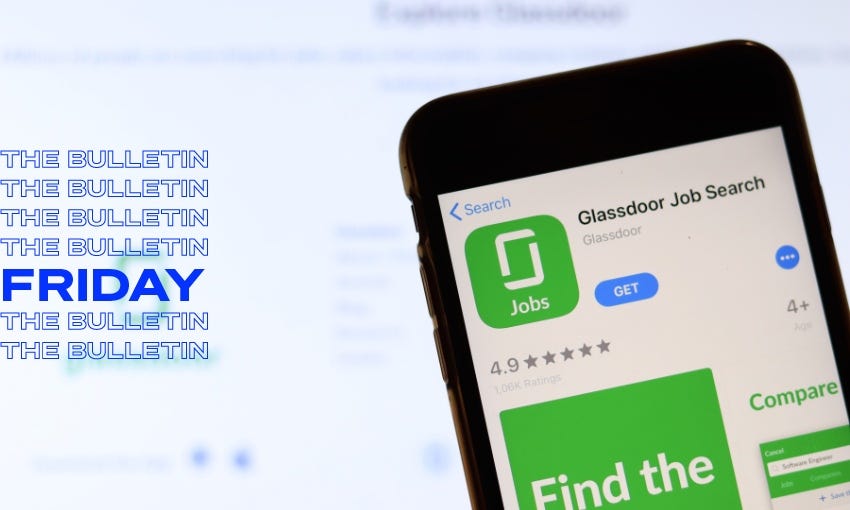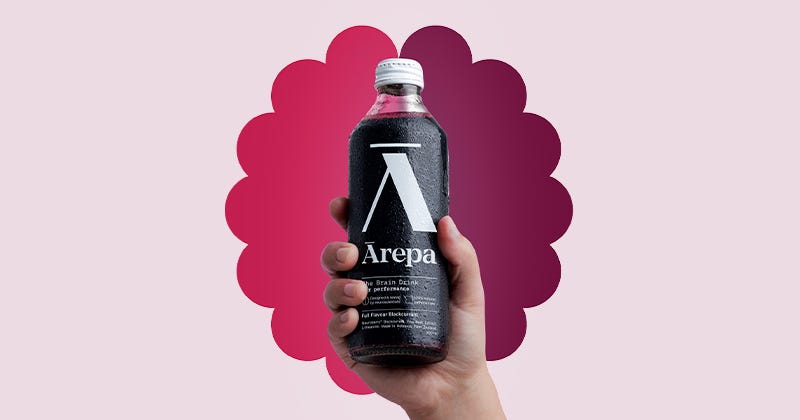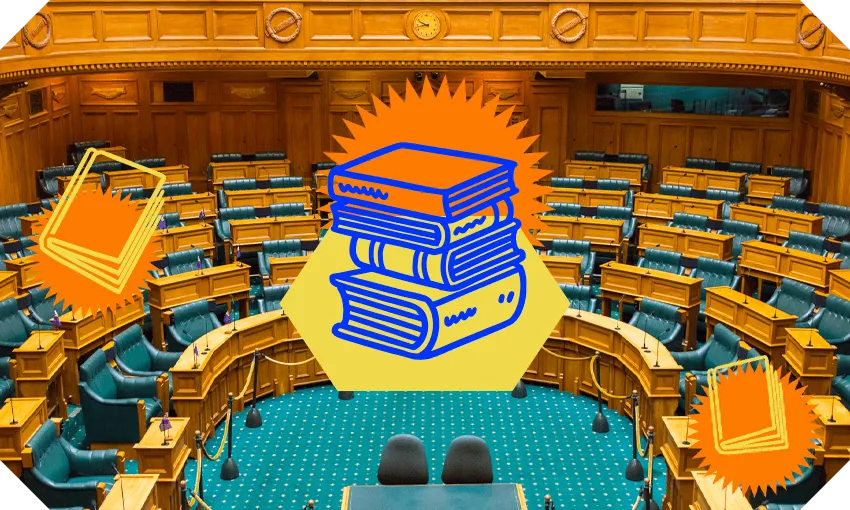The implications of the Glassdoor decision for New Zealanders
A New Zealand law lecturer says the case involving the site and NZ toy company, Zuru, has practical implications and people will need to be very careful about what they post online
Mōrena and welcome to The Bulletin for Friday, July 22, by Anna Rawhiti-Connell. Presented in partnership with Z Energy.
In today’s edition: concerns about US political situation and climate change; digital exclusion on the rise; the economics of free public transport; but first, the implications of a decision about online anonymity for New Zealanders.
Glassdoor ordered to release details of former employers who left critical reviews about Zuru. (Image: Shutterstock)
Zuru and Glassdoor respond to court decision
On Tuesday, I included an item about the billion-dollar New Zealand toy company, Zuru, and its successful court ruling in a case against online employment review site, Glassdoor. Glassdoor now has to release the details of former employees who left critical reviews on the site about the company. Reviews are meant to be anonymous. Zuru released a statement later that day, maintaining the reviews are fake. Glassdoor has also responded saying, "We note that, contrary to Zuru's contentions, the unflattering workplace experience reviews describing working at Zuru were authored by multiple former Zuru employees." Glassdoor has successfully defended over 100 cases where attempts have been made to unveil the details of users posting anonymous reviews on its site.
Decision challenges Glassdoor’s future, with ramifications for New Zealanders
Head of marketing at Auckland University business school Bodo Lang said Glassdoor’s offering was contingent on anonymity and people would not provide reviews if that wasn’t guaranteed. “If there are no reviews then they have no business, basically, so I think that would be a major blow,” Lang said. 1News’ Corazon Miller spoke to Auckland University law lecturer Nikki Chamberlain who said the decision has practical implications for New Zealanders and that “people need to be very careful in what they post online". First Union’s Louisa Jones said the decision "creates a climate of fear so that workers feel like they can't expose what's happened to them at work, which is not OK”.
Fake reviews are a problem online
In this report from Australia yesterday, one business owner said that Glassdoor made his life hell. The owner alleged that a handful of ex-employees who had joined a rival business were weaponising social media and review sites to muscle in on his business’s market. The owner said it cost the company millions of dollars in contracts and made it difficult to hire new staff. He said Glassdoor offered no help. There is at least one example of a successful lawsuit against Google for defamation and a $750,000 payout in Australia because of a fake review.
Vodafone executive says companies should embrace feedback, including the negative
Before coming to work at The Spinoff, I had a career in social media. It is also my blessing in life to be The Spinoff’s sometimes-and-unofficial LinkedIn correspondent, which is where I spotted Vodafone’s chief people officer, Jodie King, being very pragmatic. King wrote: “While nobody likes to read critical feedback, and we certainly wouldn’t condone defamation, trying to suppress or avoid anonymous feedback means we would miss out on the benefit of the rich diversity of opinions amongst people.” I’ve elaborated on my thoughts about the ruling and why I think it’s instructional for employers on The Spinoff this morning.
With today marking World Brain Day, Brainfood technology company Ārepa are joining businesses and organisations around the globe in calling for brain health for all. Through independent research and groundbreaking product development Ārepa are proud to be sparking conversations and increasing understanding about neurological wellbeing – as well as working towards solutions for the massive global burden of neurological disorders. To learn more about their innovation, their range and their mission, visit the Ārepa website. (Sponsored)
Political situation in US and its potential impact on climate change action
Newsroom’s Marc Daalder reports that climate change minister James Shaw is concerned that the US political system is getting in the way of its ability to effectively govern on climate change. Shaw says the US’s inability to meet its Paris Agreement targets could erode trust in it. The US is the world’s second-largest greenhouse gas emitter. President Joe Biden (who’s just tested positive for Covid with mild symptoms) recommitted to the Paris Agreement in 2021 after former president Donald Trump withdrew the country from it. As Daalder writes, Biden's climate agenda has been dealt two serious blows in recent weeks. First an unfavourable ruling on the administration's ability to reduce emissions through executive action, and then a Supreme Court ruling that imposed sharp limits on the country’s Environmental Protection Agency’s authority to regulate greenhouse gases.
Increase in people struggling to access services because digital channel was only option
Bit ironic given the main subject of today’s Bulletin, but I thought this was an interesting read from The Conversation by four academics from Auckland University of Technology (AUT). It’s about their work with the Citizens Advice Bureau (CAB) and public and private sector organisations on who’s getting left behind as more services are digitised. The CAB has documented a significant increase in the number of people who struggle to access government services because a digital channel was the default or only option. The authors argue that the assumption that everyone can, or should, live a digital life, should be critically examined and that people who can’t or don’t use digital services shouldn’t be regarded as problematic or deficient.
The reality of free fares
Half-price bus and train fares are good, but wouldn’t completely free fares be even better? Bernard Hickey talks to transport and urban planning academic Jen McArthur on the latest episode of When the Facts Change about the economics and politics of free public transport. He even discovers some positives that might make the idea more attractive to the usual opponents.
Click and collect
Ram raids have increased in 400% in five years
Hoping to not have to copy and paste this every day, but there could be a NZ Rugby meeting today.
ESR releases Covid wastewater testing results dashboard (spoiler, it has been detected in all 103 sites).
If you watched the Netflix film Don’t Look Up, life has grimly imitated art during an interview with a meteorologist in the UK.
Government infrastructure funding announced, review of building consent process launched.
Got some feedback about The Bulletin, or anything in the news? Get in touch with me at thebulletin@thespinoff.co.nz Like what you’ve read today? Share The Bulletin with friends, family and colleagues.
In Your Dreams: Letters Aloud is a new multi-arts event that asks five fascinating people to share deep and personal ideas and stories with a live audience. Next week on 27 July in Wellington, our own Alex Casey joins Hirini Kaa, Becky Kiddle, Vanessa Crofskey and Courtney Johnston who will read their letters 'To My Unfulfilled Idea' with live musicians create improvised sonic intros and outros throughout the night. There's nothing like letters for revealing incredible truths and nothing like music for holding all the emotions. Spinoff Members get discounts on tickets with the code MEMBER.
A decade ago the parliamentary library's most borrowed books list was all Lee Child, Marian Keyes and Alexander McCall Smith. Not any more. Toby Manhire reveals what patrons are borrowing now. Dylan Cleaver suggests NZ Rugby's comms team could learn a few things from their cricket counterparts. Chris Schulz talks to the owner of Auckland's famous St James Theatre about his new – and probably final – plan to save the mothballed venue. Shanti Mathias looks at how period tracking apps turn our bodies into data for tech companies to profit off.
High Performance Sport release plan following Cycling NZ review
As Stuff’s Dana Johannsen and Zoë George report, the government agency has released an action plan which chief executive Raelene Castle says will drive a “step change” and put the focus on athlete welfare. The plan includes appointing a women’s health lead. Cycling NZ announced it had established a cycling integrity steering committee to be chaired by former High Court judge Kit Toogood QC.
It’s Friday so…
Heavy rain causing flooding and high winds has caused major disruption throughout the country but someone in Christchurch decided to make the most of it. 1News has footage of a wetsuit-clad person wakeboarding on the floodwater as they're towed by a ute.
New Zealand Post, you’ve got options.
On Wednesday I asked if anyone had any suggestions for a name for the electric New Zealand Post truck. I had punted Post-E. Readers got in touch with their ideas. Obvious sitter from Hayden with “E-mail” and I also liked Deliver-E Truck from Alex.














Getting my shit dad joke published. My life is complete 🤙 ngā mihi
One of many problems with anonymity is that any former employee with a grudge will use that cover to vent any grievance/dislike/disagreement/opposing opinion to their employer etc... I've seen this on sights such as Rate my Teacher. You are never going to please everyone so the cover of anonymity gave students the chance to "get back" at any teacher they didn't like. I couldn't believe what I read regarding some teachers who my daughters had found outstandingly superb. It's called a difference of opinion but it's there in black & white and can destroy people's professional reputation and careers.